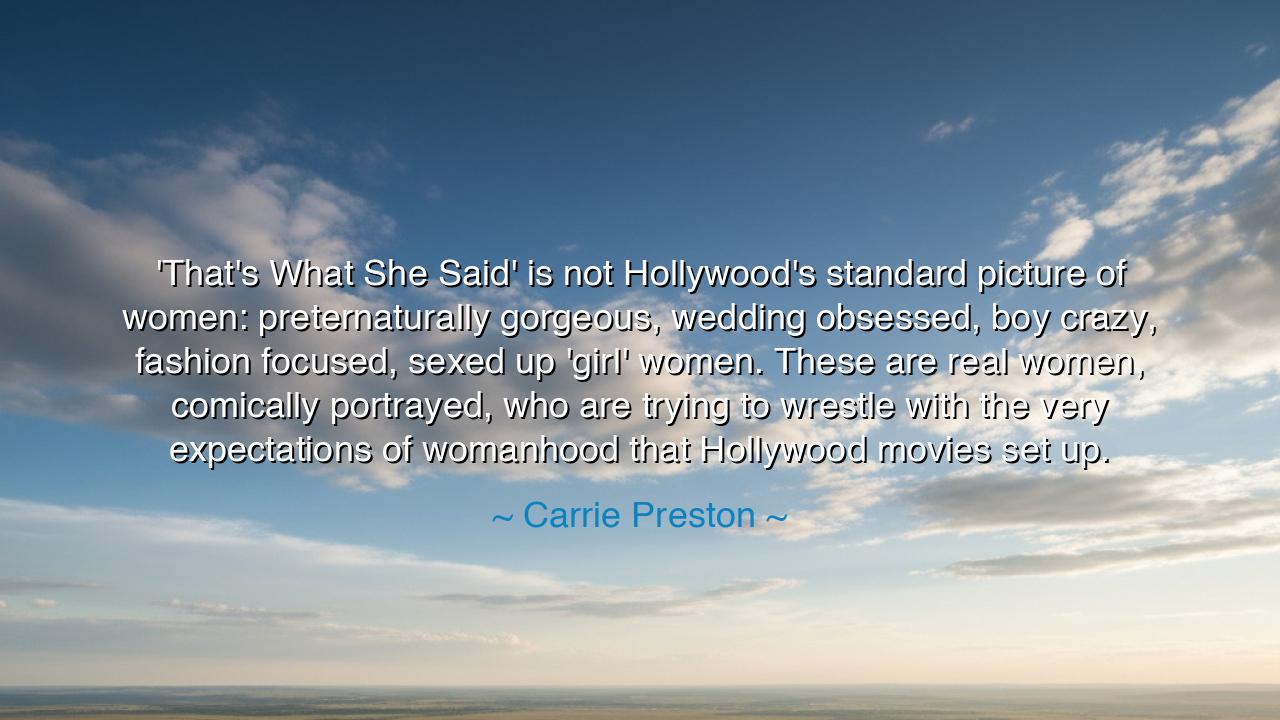
'That's What She Said' is not Hollywood's standard picture of
'That's What She Said' is not Hollywood's standard picture of women: preternaturally gorgeous, wedding obsessed, boy crazy, fashion focused, sexed up 'girl' women. These are real women, comically portrayed, who are trying to wrestle with the very expectations of womanhood that Hollywood movies set up.






In the words of Carrie Preston, there arises a cry against false images and hollow idols. She declares that “That’s What She Said” does not bow before the gilded altar of Hollywood, where women are too often painted as preternaturally gorgeous, wedding-obsessed, boy-crazy, or fashion-focused. No, here stand real women, comically yet truthfully portrayed, who wrestle with the very expectations of womanhood imposed upon them by the shining illusions of the screen. In this defiance, one hears the ancient call to shatter false gods and restore the dignity of the human soul.
For what are these exaggerated images but chains, binding the spirit of womanhood in roles not chosen but dictated? The ancients knew the danger of such illusions. Recall the tale of Helen of Troy: her beauty, praised as divine, became both a weapon and a curse, dragging nations into ruin. She was worshipped as an image, but forgotten as a person. So too does Hollywood risk fashioning women into symbols to be adored or consumed, rather than beings to be understood. Preston’s words break this spell, reminding us that comedy, with its raw and imperfect laughter, can sometimes reveal more truth than the polished mask of perfection.
To portray women as they are—flawed, striving, uncertain, yet strong—is to honor the sacred struggle of humanity itself. In Rome, the playwright Plautus often depicted servants, wives, and ordinary folk in all their messy contradictions, using humor to unveil truths the powerful wished to conceal. So too does this film follow in that lineage: laughter not as mockery, but as revelation, turning weakness into a mirror of strength.
Let us then heed this wisdom. Do not accept the shining falsehoods of culture as the only measure of worth. Look instead to the lived struggles, the awkward confessions, the daily victories of those who resist the crushing weight of expectation. For the real woman, comically portrayed, is closer to divinity than the polished statue. She dares to live, to stumble, to laugh—and in so doing, she rises above the prison of illusion.
Thus, Carrie Preston’s declaration is not merely about one film, but a summons for generations: let us strip away false images and honor the truth of human struggle. In truth lies power, in imperfection lies beauty, and in the courage to resist lies the freedom that no stage or screen can contain.






AAdministratorAdministrator
Welcome, honored guests. Please leave a comment, we will respond soon